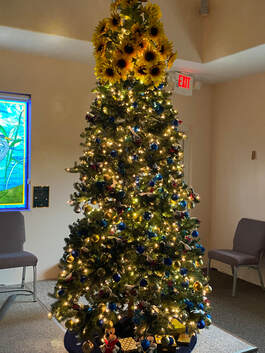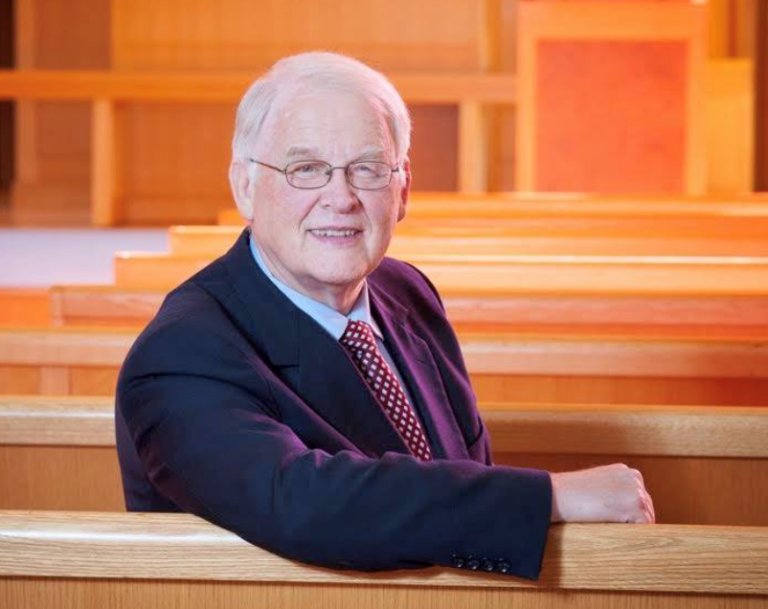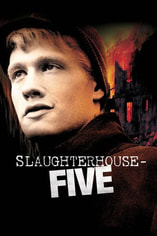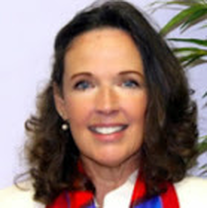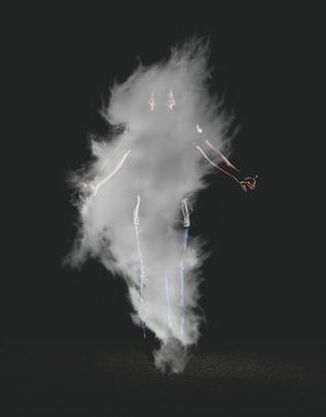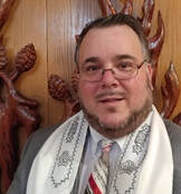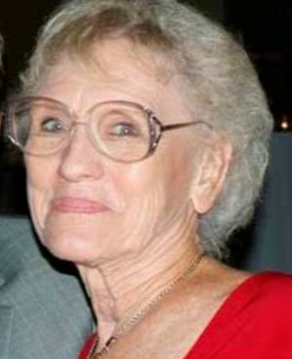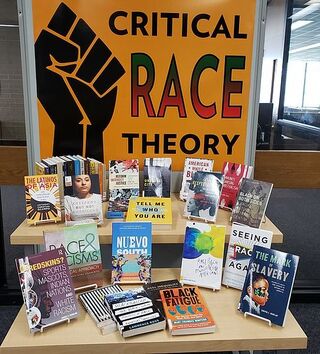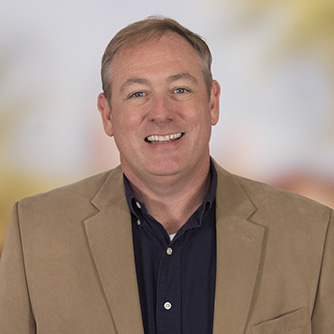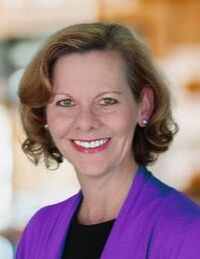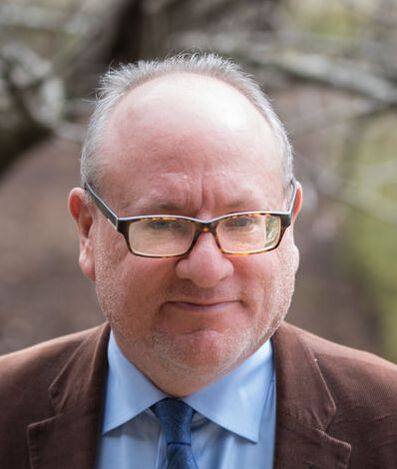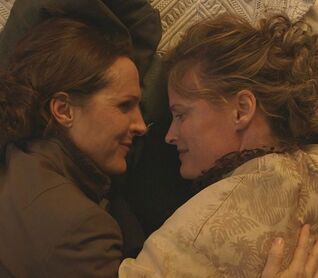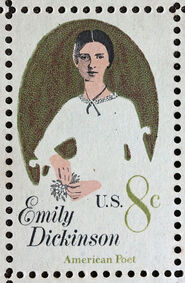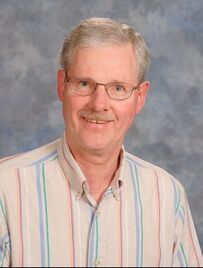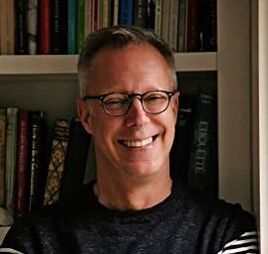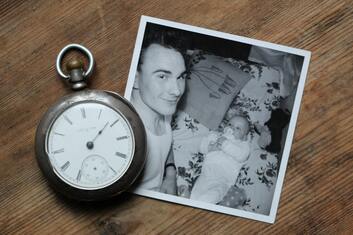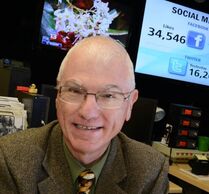2022 Services: see below
Zoom meetings were live and not recorded.
Click here for 2021 Services
Click here for 2020 Services
Click here for 2019 Sermons
For 2018 and earlier sermons:
Click here for 2018 Sermons page and
click here for the newsletters page with earlier sermons.
Zoom meetings were live and not recorded.
Click here for 2021 Services
Click here for 2020 Services
Click here for 2019 Sermons
For 2018 and earlier sermons:
Click here for 2018 Sermons page and
click here for the newsletters page with earlier sermons.
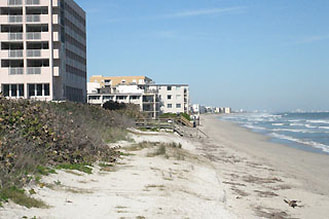
December 18:
Toward Sustainable
Coastal Development
Sermon by Dr. Robert S. Young (via zoom)
Toward Sustainable
Coastal Development
Sermon by Dr. Robert S. Young (via zoom)
What should be our first step in adapting to sea level rise and storm impacts? What is the best way to rebuild coastal resort communities like ours?
The bipartisan infrastructure act of 2021 allocated $47 billion for coastal projects designed to protect existing infrastructure along the shoreline, in most cases with no demands for the recipients to improve long-term planning for disasters or to change patterns of future flood plain development.
Federal and state taxpayers have spent billions of dollars over the past four decades pumping up beaches in front of coastal properties in what are known as beach nourishment projects. In Florida alone, almost $3 billion in public funds has been spent just to keep beaches in front of investment homes and oceanfront infrastructure. Studies in Florida have shown that these beach projects increase oceanfront development. Government spending is incentivizing this expansion into danger zones — a classic example of moral hazard, in which there is no reason to protect against risk when the government or federally subsidized flood insurance is there to pick up the tab.
A national conversation is long overdue about the dollars we invest in rebuilding coastal resort communities and what we should expect in return. The federal funds come with few restrictions at the local level to provide meaningful adaptation to future sea level rise and intensifying storms.
What should the first step be for adapting to sea level rise and storm impacts? My answer is simple. The easiest way to limit damage and loss of life is not to create vulnerabilities. Taxpayers should not be subsidizing the risk of irresponsible development, and we clearly shouldn’t be rebuilding areas of known hazard multiple times. We need to encourage meaningful coastal adaptation to storms and sea level rise. At the very least, we need to demand that communities accepting public funds for rebuilding or resilience stop putting new infrastructure in harm’s way.
Hurricane Ian is a chance to change that calculus in Florida. Let’s hope that federal, state and local governments can come together to rebuild infrastructure in a way that will reduce future vulnerability and limit taxpayer exposure.
There are some places from which we need to pull back. For instance, should we rebuild all of the areas of Fort Myers Beach, Fla., wiped away by storm surge? What would happen if a future Hurricane Ian strikes the Space Coast? Communities are often reluctant to give up even a small portion of their tax base. Some also incorrectly believe that, as the saying goes, if the first row goes, we are all doomed. They will spend money on protection until the bitter end.
We should walk away from the most vulnerable areas of our oceanfront and spend the money saved on buttressing the more sustainable parts of the community. We should be demanding this approach in the allocation of federal funds. This is not about abandoning the coastal economy. This is how we preserve it.
Dr. Young is a professor at Western Carolina University where he directs the program for the study of developed shorelines. He holds a Ph.D. in Geology from Duke University.
The bipartisan infrastructure act of 2021 allocated $47 billion for coastal projects designed to protect existing infrastructure along the shoreline, in most cases with no demands for the recipients to improve long-term planning for disasters or to change patterns of future flood plain development.
Federal and state taxpayers have spent billions of dollars over the past four decades pumping up beaches in front of coastal properties in what are known as beach nourishment projects. In Florida alone, almost $3 billion in public funds has been spent just to keep beaches in front of investment homes and oceanfront infrastructure. Studies in Florida have shown that these beach projects increase oceanfront development. Government spending is incentivizing this expansion into danger zones — a classic example of moral hazard, in which there is no reason to protect against risk when the government or federally subsidized flood insurance is there to pick up the tab.
A national conversation is long overdue about the dollars we invest in rebuilding coastal resort communities and what we should expect in return. The federal funds come with few restrictions at the local level to provide meaningful adaptation to future sea level rise and intensifying storms.
What should the first step be for adapting to sea level rise and storm impacts? My answer is simple. The easiest way to limit damage and loss of life is not to create vulnerabilities. Taxpayers should not be subsidizing the risk of irresponsible development, and we clearly shouldn’t be rebuilding areas of known hazard multiple times. We need to encourage meaningful coastal adaptation to storms and sea level rise. At the very least, we need to demand that communities accepting public funds for rebuilding or resilience stop putting new infrastructure in harm’s way.
Hurricane Ian is a chance to change that calculus in Florida. Let’s hope that federal, state and local governments can come together to rebuild infrastructure in a way that will reduce future vulnerability and limit taxpayer exposure.
There are some places from which we need to pull back. For instance, should we rebuild all of the areas of Fort Myers Beach, Fla., wiped away by storm surge? What would happen if a future Hurricane Ian strikes the Space Coast? Communities are often reluctant to give up even a small portion of their tax base. Some also incorrectly believe that, as the saying goes, if the first row goes, we are all doomed. They will spend money on protection until the bitter end.
We should walk away from the most vulnerable areas of our oceanfront and spend the money saved on buttressing the more sustainable parts of the community. We should be demanding this approach in the allocation of federal funds. This is not about abandoning the coastal economy. This is how we preserve it.
Dr. Young is a professor at Western Carolina University where he directs the program for the study of developed shorelines. He holds a Ph.D. in Geology from Duke University.
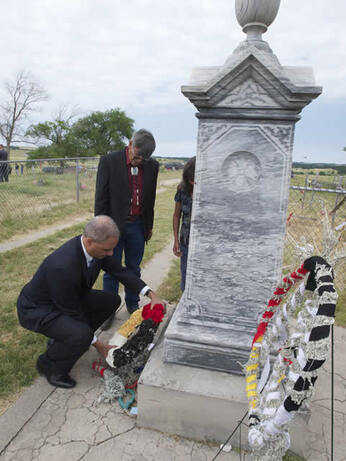 US Attorney General Eric Holder laying a wreath at the site of the Wounded Knee Memorial, September 26, 2009
US Attorney General Eric Holder laying a wreath at the site of the Wounded Knee Memorial, September 26, 2009
December 11:
Bury My Heart at Wounded Knee -
A Personal Recollection
Sermon by Jim Caverly (in person)
Former FBI agent Jim Caverly shares his experience of the Wounded Knee South Dakota siege in 1973 in which both FBI agents and Native Americans were killed. As a result of his involvement, Jim and his wife adopted and raised a Native American girl. Her story highlights the ramifications of the three dismal choices offered to Native Americans: assimilation, relocation or genocide. The treatment of Native Americans is now and always has been grotesque. This story needs to be told; unfortunately, it does not have a happy ending.
Jim Caverly and his wife Jeanne have been married for 50 years and have two adult children residing in New York. Their adopted daughter Linda, a member of the Lakota Sioux tribe of South Dakota, died in 2016.
Jim, a retired Special Agent of the Federal Bureau of Investigation, spent 27 years conducting investigations, including criminal and foreign counter-intelligence assignments. He served as a hostage negotiator and was a member of the FBI SWAT and Evidence Response Teams.
Bury My Heart at Wounded Knee -
A Personal Recollection
Sermon by Jim Caverly (in person)
Former FBI agent Jim Caverly shares his experience of the Wounded Knee South Dakota siege in 1973 in which both FBI agents and Native Americans were killed. As a result of his involvement, Jim and his wife adopted and raised a Native American girl. Her story highlights the ramifications of the three dismal choices offered to Native Americans: assimilation, relocation or genocide. The treatment of Native Americans is now and always has been grotesque. This story needs to be told; unfortunately, it does not have a happy ending.
Jim Caverly and his wife Jeanne have been married for 50 years and have two adult children residing in New York. Their adopted daughter Linda, a member of the Lakota Sioux tribe of South Dakota, died in 2016.
Jim, a retired Special Agent of the Federal Bureau of Investigation, spent 27 years conducting investigations, including criminal and foreign counter-intelligence assignments. He served as a hostage negotiator and was a member of the FBI SWAT and Evidence Response Teams.
After his retirement from the FBI in 1999, Jim conducted vulnerability assessments throughout the United States for the Department of Energy’s Naval Reactor Program.
Jim also served as a grief counselor for the families of police officers killed in the line of duty for 25 years and rode his bicycle from Oregon to Maine in 2012 as a fundraiser for Concerns of Police Survivors (C.O.P.S.). As team leader of the FBI’s Northeast Critical Incident Stress Management Team, Jim conducted debriefings during recovery operations after the crash of TWA 800 in Long Island, the Murrah Building Bombing in Oklahoma City, and the first World Trade Center attack.
Prior to settling down at Heritage Isle in Florida, Jim and his wife toured the country as full-time RVers for 10 years and have been active with the Red Cross Disaster Action Team at both Hurricane Rita in Texas and Hurricane Wilma in Florida. They conducted damage assessments in Atlantic City for FEMA after Superstorm Sandy and participated in Habitat for Humanity Care-A-Vanner Builds. Jim served as a volunteer with Hospice of St. Francis in Brevard County for seven years.
Jim also served as a grief counselor for the families of police officers killed in the line of duty for 25 years and rode his bicycle from Oregon to Maine in 2012 as a fundraiser for Concerns of Police Survivors (C.O.P.S.). As team leader of the FBI’s Northeast Critical Incident Stress Management Team, Jim conducted debriefings during recovery operations after the crash of TWA 800 in Long Island, the Murrah Building Bombing in Oklahoma City, and the first World Trade Center attack.
Prior to settling down at Heritage Isle in Florida, Jim and his wife toured the country as full-time RVers for 10 years and have been active with the Red Cross Disaster Action Team at both Hurricane Rita in Texas and Hurricane Wilma in Florida. They conducted damage assessments in Atlantic City for FEMA after Superstorm Sandy and participated in Habitat for Humanity Care-A-Vanner Builds. Jim served as a volunteer with Hospice of St. Francis in Brevard County for seven years.
 Photo: https://unsplash.com/photos/Mu_9w7l1koI
Photo: https://unsplash.com/photos/Mu_9w7l1koI
December 4:
Finding Meaning in the Season
Sermon by Rev Claudia Jimenez (via zoom)
This is the time of Christmas services and pageants inviting us to reflect on our Unitarian Universalist Christian heritage and the meaning of the holiday season. What needs of the human spirit are met during this and other winter holiday observances? Join us in an exploration of how we can find meaning in the season and embrace theological generosity.
The Rev. Claudia Jiménez serves as Minister of Faith Development at the Unitarian Universalist Congregation of Asheville in NC. She is a frequent speaker at our Fellowship.
Finding Meaning in the Season
Sermon by Rev Claudia Jimenez (via zoom)
This is the time of Christmas services and pageants inviting us to reflect on our Unitarian Universalist Christian heritage and the meaning of the holiday season. What needs of the human spirit are met during this and other winter holiday observances? Join us in an exploration of how we can find meaning in the season and embrace theological generosity.
The Rev. Claudia Jiménez serves as Minister of Faith Development at the Unitarian Universalist Congregation of Asheville in NC. She is a frequent speaker at our Fellowship.
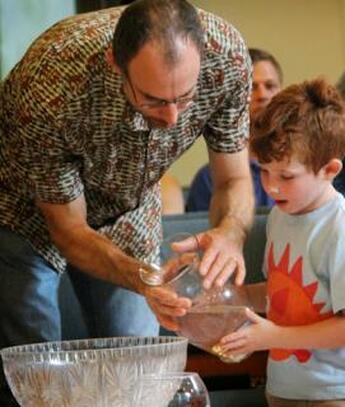
November 27:
Water Ceremony
Service Leader: Cindy Collins
The Water Ceremony, was first used at a Unitarian Universalist (UU) worship service in the 1980s. Many UU congregations now hold a Water Ceremony at least once a year.
Members bring to the service a small amount of water from a place that is special to them. During the appointed time in the service, people one by one pour their water together into a large bowl. As the water is added, the person who brought it tells why this water is special to them. The combined water is symbolic of our shared faith coming from many different sources.
Water Ceremony
Service Leader: Cindy Collins
The Water Ceremony, was first used at a Unitarian Universalist (UU) worship service in the 1980s. Many UU congregations now hold a Water Ceremony at least once a year.
Members bring to the service a small amount of water from a place that is special to them. During the appointed time in the service, people one by one pour their water together into a large bowl. As the water is added, the person who brought it tells why this water is special to them. The combined water is symbolic of our shared faith coming from many different sources.
November 20:
Being Woke
Sermon by Mike Woltz (via zoom)
The purpose of this sermon is to analyze words and concepts concerning "wokeness" that have become ubiquitous in the current landscape, while seeming to have multiple meanings. The motivations behind their usage will be examined, and those present will be asked to consider what impact these words and ideas should have on their actions.
Being Woke
Sermon by Mike Woltz (via zoom)
The purpose of this sermon is to analyze words and concepts concerning "wokeness" that have become ubiquitous in the current landscape, while seeming to have multiple meanings. The motivations behind their usage will be examined, and those present will be asked to consider what impact these words and ideas should have on their actions.
Mike Woltz has spent over 20 years studying racism and white supremacy in America, gaining a deep understanding of how it manifests in virtually every aspect of society. He graduated from Williams College with a Bachelor of Arts in English and a Concentration in African-American Studies, and holds a Juris Doctorate from Georgetown University Law Center. Following law school, he clerked for a civil court judge, worked as an associate with a civil litigation firm, and eventually joined the federal government, where he has been for over 15 years.
Mr. Woltz began to combat racism in the Fairfax County Public School System in Northern Virginia through advocating for his children, which led him to additional opportunities to do such work, including advising elected officials and school division leadership, and training parents and educational leaders. As chair of his local NAACP Unit’s Legal Redress Committee, he supervises a team of case managers who handle discrimination complaints from citizens who work and live in Fairfax County.
At the federal level, Mr. Woltz has led discussion groups of employees focusing on the creation of whiteness and how it has functioned over time in the United States. He has also counseled employees with workplace grievances based on allegations of discrimination and will frequently brief the highest levels of agency leadership on these matters. He currently leads a summer internship program geared towards exposing students at historically black colleges and universities and community colleges to potential careers in service to the federal courts.
Mr. Woltz began to combat racism in the Fairfax County Public School System in Northern Virginia through advocating for his children, which led him to additional opportunities to do such work, including advising elected officials and school division leadership, and training parents and educational leaders. As chair of his local NAACP Unit’s Legal Redress Committee, he supervises a team of case managers who handle discrimination complaints from citizens who work and live in Fairfax County.
At the federal level, Mr. Woltz has led discussion groups of employees focusing on the creation of whiteness and how it has functioned over time in the United States. He has also counseled employees with workplace grievances based on allegations of discrimination and will frequently brief the highest levels of agency leadership on these matters. He currently leads a summer internship program geared towards exposing students at historically black colleges and universities and community colleges to potential careers in service to the federal courts.
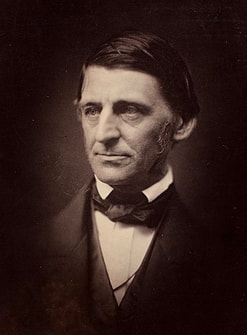
November 13:
A Conversation with Ralph Waldo Emerson
Sermon by Rev. Paul Johnson
Emerson is very important to our Unitarian Universalist heritage. Rev Johnson will present important aspects of his life and thought and then will engage him in a dialogue about questions regarding his ideas concerning the Oversoul, compensation, and self-reliance.
Rev. Dr. Paul S. Johnson holds the Doctor of Ministry and Doctor of Divinity degrees from Meadville/Lombard Theological School in Chicago, and has served Unitarian Universalist congregations in five states. Dr. Johnson is a frequent speaker at our Fellowship.
A Conversation with Ralph Waldo Emerson
Sermon by Rev. Paul Johnson
Emerson is very important to our Unitarian Universalist heritage. Rev Johnson will present important aspects of his life and thought and then will engage him in a dialogue about questions regarding his ideas concerning the Oversoul, compensation, and self-reliance.
Rev. Dr. Paul S. Johnson holds the Doctor of Ministry and Doctor of Divinity degrees from Meadville/Lombard Theological School in Chicago, and has served Unitarian Universalist congregations in five states. Dr. Johnson is a frequent speaker at our Fellowship.

November 6:
What is the Promise of Unitarian Universalism?
Sermon by Rev. Claudia Jemenez (via Zoom)
In these times of polarization, pandemic recovery and uncertainty how does our UU faith ground us and support hopeful engagement? This is a participatory sermon. Rev. Claudia will craft the sermon to incorporate haikus written by the congregation about "the promise of UUism." Send your haikus to [email protected] by October 30th.
Bio:
The Rev. Claudia Jiménez serves as Minister of Faith Development at the Unitarian Universalist Congregation of Asheville in NC. She is a frequent speaker at our Fellowship.
What is the Promise of Unitarian Universalism?
Sermon by Rev. Claudia Jemenez (via Zoom)
In these times of polarization, pandemic recovery and uncertainty how does our UU faith ground us and support hopeful engagement? This is a participatory sermon. Rev. Claudia will craft the sermon to incorporate haikus written by the congregation about "the promise of UUism." Send your haikus to [email protected] by October 30th.
Bio:
The Rev. Claudia Jiménez serves as Minister of Faith Development at the Unitarian Universalist Congregation of Asheville in NC. She is a frequent speaker at our Fellowship.
 Globalmarch.org
Globalmarch.org
October 30:
The Global March Against Child Labor
Sermon by Tim Ryan (in person)
It is difficult to believe that in the modern world there are 152 million underage child laborers and 40 million people in modern slavery. Tim Ryan, a resident of Brevard County, is the chair of an international organization, The Global March Against Child Labor, whose mission is to combat this situation throughout the world. It's an advocacy and action network comprised of dozens of organizations in Asia, Africa, Latin America, Europe, and North America. The founder of the organization, Kailash Satyarthi, received the Nobel Peace Prize in 2014 in recognition of his decades of work to rescue and advocate for children. Tim Ryan now carries on that tradition. Join us for this intriguing sermon on his efforts to save the children of the world.
Timothy (Tim) Ryan was the Asia Regional Program Director for Solidarity Center, based in Washington DC between 2001 and his retirement in 2021. The Solidarity Center is the largest U.S.-based international worker rights organization partnering directly with workers and their unions, and supporting their struggle for respect, fair wages, better workplaces and a voice in the global economy.
Tim oversaw all Solidarity Center programs for Asia, including offices in Thailand, Burma, Cambodia, Indonesia, Bangladesh, Pakistan, Sri Lanka, and Vietnam, with regional programs in India, Nepal, Philippines, and the Maldives. Between 2005 and 2011 Timothy also directed the European department covering offices and programs in Bosnia, Albania, Macedonia, Russia, Georgia, Belarus, Ukraine, and Kyrgyzstan.
He spent eight years in Asia as the Solidarity Center’s Country Program Director for Sri Lanka and Indonesia, working on organizing export processing zones, migrant worker issues, and in India and Pakistan his work was focused on developing programs to combat child labor. In Indonesia he focused on trade union organizing, policy advocacy training for unions, labor law reform, legal aid for fired and imprisoned union activists, promoting policy and legal advocacy for migrant workers and child laborers, voter education, get-out-the-vote programs, and long-term election monitoring.
Tim's writing on labor and political issues has appeared in Harper’s, Foreign Policy, Thomson-Reuters, Foreign Policy in Focus, The Far Eastern Economic Review, the Huffington Post, The Christian Science Monitor, and in national newspapers in South Asia and Latin America. He is the Executive Producer of “Knots: A Forced Marriage Story,” an international award-winning feature-length documentary on forced marriage in the US. Tim is a graduate of the University of Washington (Seattle) and holds a Master's degree in South Asian Studies.
The Global March Against Child Labor
Sermon by Tim Ryan (in person)
It is difficult to believe that in the modern world there are 152 million underage child laborers and 40 million people in modern slavery. Tim Ryan, a resident of Brevard County, is the chair of an international organization, The Global March Against Child Labor, whose mission is to combat this situation throughout the world. It's an advocacy and action network comprised of dozens of organizations in Asia, Africa, Latin America, Europe, and North America. The founder of the organization, Kailash Satyarthi, received the Nobel Peace Prize in 2014 in recognition of his decades of work to rescue and advocate for children. Tim Ryan now carries on that tradition. Join us for this intriguing sermon on his efforts to save the children of the world.
Timothy (Tim) Ryan was the Asia Regional Program Director for Solidarity Center, based in Washington DC between 2001 and his retirement in 2021. The Solidarity Center is the largest U.S.-based international worker rights organization partnering directly with workers and their unions, and supporting their struggle for respect, fair wages, better workplaces and a voice in the global economy.
Tim oversaw all Solidarity Center programs for Asia, including offices in Thailand, Burma, Cambodia, Indonesia, Bangladesh, Pakistan, Sri Lanka, and Vietnam, with regional programs in India, Nepal, Philippines, and the Maldives. Between 2005 and 2011 Timothy also directed the European department covering offices and programs in Bosnia, Albania, Macedonia, Russia, Georgia, Belarus, Ukraine, and Kyrgyzstan.
He spent eight years in Asia as the Solidarity Center’s Country Program Director for Sri Lanka and Indonesia, working on organizing export processing zones, migrant worker issues, and in India and Pakistan his work was focused on developing programs to combat child labor. In Indonesia he focused on trade union organizing, policy advocacy training for unions, labor law reform, legal aid for fired and imprisoned union activists, promoting policy and legal advocacy for migrant workers and child laborers, voter education, get-out-the-vote programs, and long-term election monitoring.
Tim's writing on labor and political issues has appeared in Harper’s, Foreign Policy, Thomson-Reuters, Foreign Policy in Focus, The Far Eastern Economic Review, the Huffington Post, The Christian Science Monitor, and in national newspapers in South Asia and Latin America. He is the Executive Producer of “Knots: A Forced Marriage Story,” an international award-winning feature-length documentary on forced marriage in the US. Tim is a graduate of the University of Washington (Seattle) and holds a Master's degree in South Asian Studies.
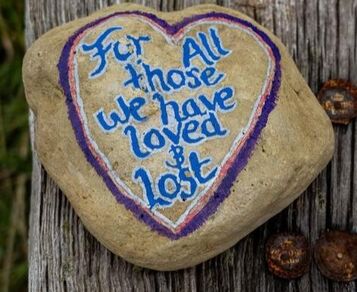 nick-fewings-do0KG7sLttM-unsplash.jpg
nick-fewings-do0KG7sLttM-unsplash.jpg
October 23:
The Holy Practice of Grief
Sermon by Rev Pam McMillan
(in person)
People are compelled to accept loss, yet it is extremely important how they choose to experience grief. Properly done it can lead to a closer awareness of the beauty of life.
Pam McMillan is a United Methodist minister, a trained hospice chaplain and member of "Interfaith United" here in Brevard County.
The Holy Practice of Grief
Sermon by Rev Pam McMillan
(in person)
People are compelled to accept loss, yet it is extremely important how they choose to experience grief. Properly done it can lead to a closer awareness of the beauty of life.
Pam McMillan is a United Methodist minister, a trained hospice chaplain and member of "Interfaith United" here in Brevard County.
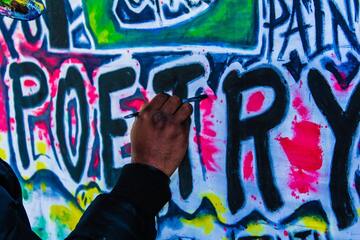
October 16:
The Purpose of Poetry
Sermon by Rev Lynn Ungar
(via zoom)
Sure, poetry is nice and all, but what is it for? What does it do? The same question might be asked about religion. Rev. Dr. Lynn Ungar is a UU minister, a poet whose work has been shared widely, and a trainer who teaches dogs to do elegant, useless things. She lives in Vancouver, Washington with her three Australian shepherds.
The Purpose of Poetry
Sermon by Rev Lynn Ungar
(via zoom)
Sure, poetry is nice and all, but what is it for? What does it do? The same question might be asked about religion. Rev. Dr. Lynn Ungar is a UU minister, a poet whose work has been shared widely, and a trainer who teaches dogs to do elegant, useless things. She lives in Vancouver, Washington with her three Australian shepherds.
October 9:
The Conundrum of Conscience
Sermon by Rev Paul Johnson (via zoom)
Important throughout the history of Unitarian Universalism has been the importance and authoritativeness of individual conscience, a self-conscience activity involving decisions about right and wrong, good and evil, or the greater good and lesser evil. “Right of Conscience” is included in our current “Purposes and Principles.” My title suggests that conscience presents us with a riddle or something that puzzles. Where does it come from? What is its basis? Can it always be relied upon? I’ve thought about the topic recently as I have heard a number of January 6 insurrectionists claim they were acting in “good conscience.” Please join me as I take on the conundrum..
Rev. Dr. Paul S. Johnson holds the Doctor of Ministry and Doctor of Divinity degrees from Meadville/Lombard Theological School in Chicago, and has served UU congregations in five states. He has served his denomination as president of the Unitarian Universalist Ministers Association, as a member of the UUA's Commission on Social Witness, and as a board member of Meadville/Lombard. Paul is a frequent speaker at our Fellowship.
The Conundrum of Conscience
Sermon by Rev Paul Johnson (via zoom)
Important throughout the history of Unitarian Universalism has been the importance and authoritativeness of individual conscience, a self-conscience activity involving decisions about right and wrong, good and evil, or the greater good and lesser evil. “Right of Conscience” is included in our current “Purposes and Principles.” My title suggests that conscience presents us with a riddle or something that puzzles. Where does it come from? What is its basis? Can it always be relied upon? I’ve thought about the topic recently as I have heard a number of January 6 insurrectionists claim they were acting in “good conscience.” Please join me as I take on the conundrum..
Rev. Dr. Paul S. Johnson holds the Doctor of Ministry and Doctor of Divinity degrees from Meadville/Lombard Theological School in Chicago, and has served UU congregations in five states. He has served his denomination as president of the Unitarian Universalist Ministers Association, as a member of the UUA's Commission on Social Witness, and as a board member of Meadville/Lombard. Paul is a frequent speaker at our Fellowship.
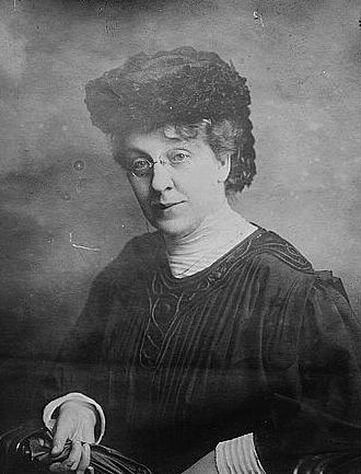
October 2:
The Notorious "CBC"
Sermon by Rev Claudia Jimenez
Ministry on the frontier and in our denomination was challenging enough in the 1800s. The resilience and perseverance of women ministers like Rev. Caroline Bartlett Crane ("CBC") despite being shunned by the Boston patriarchy are even more remarkable and heartbreaking. What can we learn in this pandemic time from imaginative, pioneer women ministers who were nurturing families, making church more welcoming and promoting community engagement?
The Rev. Claudia Jiménez serves as Minister of Faith Development at the Unitarian Universalist Congregation of Asheville in NC. She is a frequent speaker at our Fellowship.
The Notorious "CBC"
Sermon by Rev Claudia Jimenez
Ministry on the frontier and in our denomination was challenging enough in the 1800s. The resilience and perseverance of women ministers like Rev. Caroline Bartlett Crane ("CBC") despite being shunned by the Boston patriarchy are even more remarkable and heartbreaking. What can we learn in this pandemic time from imaginative, pioneer women ministers who were nurturing families, making church more welcoming and promoting community engagement?
The Rev. Claudia Jiménez serves as Minister of Faith Development at the Unitarian Universalist Congregation of Asheville in NC. She is a frequent speaker at our Fellowship.
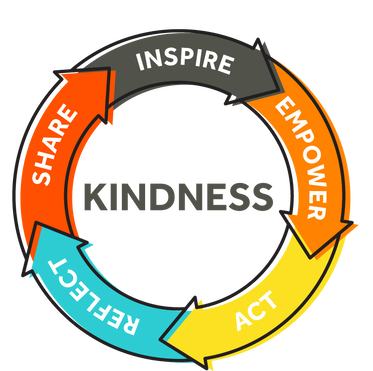 Image: Random Acts of Kindness Foundation
Image: Random Acts of Kindness Foundation
September 25:
Practice Random Acts of Kindness
Sermon by Rev. Paul Johnson
Very likely you've seen or heard this phrase over the years. It originated in the early 1980's when Ann Herbert wrote it down on a Sausalito restaurant placement (with the additional words "and senseless acts of beauty"). An impressed fellow diner shared it with a local newspaper and it eventually found its way to the national press. Books were written on the theme and Oprah did a show on it. It has left the national spotlight in recent years, so I want to revive it because I find it an inspiring aspect of my Unitarian Universalist journey.
Rev. Dr. Paul S. Johnson holds the Doctor of Ministry, and Doctor of Divinity degrees from Meadville/Lombard Theological School in Chicago, and has served Unitarian Universalist congregations in MN, MD, VA, NJ, and NY. After leaving his last settled ministry at the Shelter Rock Unitarian Universalist Congregation on Long Island, he assumed his present position as developmental minister at the Treasure Coast Unitarian Universalist Congregation in Stuart, FL. He has served his denomination as president of the Unitarian Universalist Ministers Association, as a member of the Unitarian Universalist Association's Commission on Social Witness, and as a board member of Meadville/Lombard.
His wife, Carol Rowan, recently retired after a 33 year career as a clinical social worker with the U.S. Department of Veterans Affairs.
After serving the Stuart congregation as developmental minister for four years, Paul was an interim minister in Jacksonville for one year and for the past year has been with the Unitarian Universalist congregation in West Melbourne.
Practice Random Acts of Kindness
Sermon by Rev. Paul Johnson
Very likely you've seen or heard this phrase over the years. It originated in the early 1980's when Ann Herbert wrote it down on a Sausalito restaurant placement (with the additional words "and senseless acts of beauty"). An impressed fellow diner shared it with a local newspaper and it eventually found its way to the national press. Books were written on the theme and Oprah did a show on it. It has left the national spotlight in recent years, so I want to revive it because I find it an inspiring aspect of my Unitarian Universalist journey.
Rev. Dr. Paul S. Johnson holds the Doctor of Ministry, and Doctor of Divinity degrees from Meadville/Lombard Theological School in Chicago, and has served Unitarian Universalist congregations in MN, MD, VA, NJ, and NY. After leaving his last settled ministry at the Shelter Rock Unitarian Universalist Congregation on Long Island, he assumed his present position as developmental minister at the Treasure Coast Unitarian Universalist Congregation in Stuart, FL. He has served his denomination as president of the Unitarian Universalist Ministers Association, as a member of the Unitarian Universalist Association's Commission on Social Witness, and as a board member of Meadville/Lombard.
His wife, Carol Rowan, recently retired after a 33 year career as a clinical social worker with the U.S. Department of Veterans Affairs.
After serving the Stuart congregation as developmental minister for four years, Paul was an interim minister in Jacksonville for one year and for the past year has been with the Unitarian Universalist congregation in West Melbourne.
September 18:
Improv, a Spiritual Practice?
Sermon by Rev. Claudia Jimenez
What does the practice of improvisational theater have to teach us about living? About being a Unitarian Universalist? Join guest preacher, Rev. Claudia Jiménez, to explore how the curiosity, playfulness and vulnerability of improvising can enrich our lives.
Rev. Claudia Jiménez serves as Minister of Faith Development at the Unitarian Universalist Congregation of Asheville in NC. She was hired in 2018 after graduating from Meadville Lombard Theological School. She served as intern minister 2016-2017.
Prior to seminary she served as Director of Religious Education for the Unitarian Universalist Fellowship of Vero Beach, FL for 17 years. During that time, she ran for office and served on her local school board for 8 years. Her background is in education having taught elementary school and middle school science in the US and abroad.
While in seminary, Claudia completed the requirements to become a Credentialed Religious Educator considering it an integral part of her preparation for parish ministry. Claudia and her husband Steve are proud parents of two young adult daughters. When not at work she enjoys Latin dancing, hiking and traveling.
Improv, a Spiritual Practice?
Sermon by Rev. Claudia Jimenez
What does the practice of improvisational theater have to teach us about living? About being a Unitarian Universalist? Join guest preacher, Rev. Claudia Jiménez, to explore how the curiosity, playfulness and vulnerability of improvising can enrich our lives.
Rev. Claudia Jiménez serves as Minister of Faith Development at the Unitarian Universalist Congregation of Asheville in NC. She was hired in 2018 after graduating from Meadville Lombard Theological School. She served as intern minister 2016-2017.
Prior to seminary she served as Director of Religious Education for the Unitarian Universalist Fellowship of Vero Beach, FL for 17 years. During that time, she ran for office and served on her local school board for 8 years. Her background is in education having taught elementary school and middle school science in the US and abroad.
While in seminary, Claudia completed the requirements to become a Credentialed Religious Educator considering it an integral part of her preparation for parish ministry. Claudia and her husband Steve are proud parents of two young adult daughters. When not at work she enjoys Latin dancing, hiking and traveling.
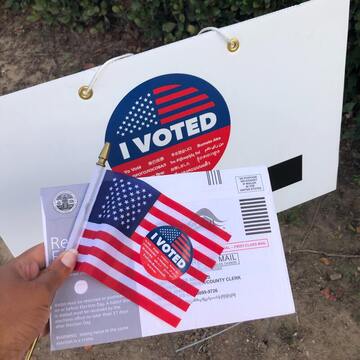 Photo: Janine Robinson via Unsplash.com
Photo: Janine Robinson via Unsplash.com
September 11:
Voting Laws and the 2022 Elections
Sermon by Dr. Terri Fine, UCF
The US Constitution gives to the state legislatures the power to determine the “Times, Places and Manner of holding Elections…” provided that “Congress may at any time by Law make or alter such Regulations,…”. (Article I, Section 4) In essence, the U.S. Constitution gives to states the power to regulate elections unless a national law is in place that would supersede those state-level regulations.
These state-level powers were exercised in full force in 2021 when 19 states passed 34 laws restricting voting access. As part of these efforts, some bills were introduced that would allow partisan actors to interfere with election processes or reject election outcomes. Other states also acted in their 2022 legislative sessions.
Voting Laws and the 2022 Elections
Sermon by Dr. Terri Fine, UCF
The US Constitution gives to the state legislatures the power to determine the “Times, Places and Manner of holding Elections…” provided that “Congress may at any time by Law make or alter such Regulations,…”. (Article I, Section 4) In essence, the U.S. Constitution gives to states the power to regulate elections unless a national law is in place that would supersede those state-level regulations.
These state-level powers were exercised in full force in 2021 when 19 states passed 34 laws restricting voting access. As part of these efforts, some bills were introduced that would allow partisan actors to interfere with election processes or reject election outcomes. Other states also acted in their 2022 legislative sessions.
Yet these legislative efforts have been upheld by the courts while President Biden’s support for national-level voting regulations that would limit state election power through the John R. Lewis Voting Rights Advancement Act of 2021 did not lead to sufficient congressional support needed for passage as the House voted in favor of the bill while the Senate did not vote on it.
In this presentation, we will discuss this state-national government election law dynamic, giving particular focus on Florida. Discussion will be organized around election law changes passed in Florida since the 2020 election, and the short- and long-term potential and actual impact of those laws.
Terri Susan Fine, Ph.D. is professor of political science in the School of Politics, Security and International Affairs (SPSIA) at the University of Central Florida (UCF). She also serves as content specialist for the Florida Joint Center for Citizenship and associate director of the Lou Frey Institute of Politics and Government, both part of SPSIA, in which she takes an active role in Florida’s K-12 civic education efforts, and directs the civics teaching certificate, the only statewide certificate of its kind.
She has taught several courses focusing on minority issues including Women and Politics, Politics and Civil Rights and Religion and Politics, as well as American National Government, Scope and Methods of Political Science, State and Local Government and Political Psychology. She also teaches Political Ideals and the U.S. Constitution, which emerged from a course she developed and taught for the Florida Prison Education Project.
She is the recipient of the 2021 Florida Council for the Social Studies Agnes Crabtree International Relations award, ten teaching awards at UCF and one university-wide award each in faculty leadership, professional service, and academic advising.
In this presentation, we will discuss this state-national government election law dynamic, giving particular focus on Florida. Discussion will be organized around election law changes passed in Florida since the 2020 election, and the short- and long-term potential and actual impact of those laws.
Terri Susan Fine, Ph.D. is professor of political science in the School of Politics, Security and International Affairs (SPSIA) at the University of Central Florida (UCF). She also serves as content specialist for the Florida Joint Center for Citizenship and associate director of the Lou Frey Institute of Politics and Government, both part of SPSIA, in which she takes an active role in Florida’s K-12 civic education efforts, and directs the civics teaching certificate, the only statewide certificate of its kind.
She has taught several courses focusing on minority issues including Women and Politics, Politics and Civil Rights and Religion and Politics, as well as American National Government, Scope and Methods of Political Science, State and Local Government and Political Psychology. She also teaches Political Ideals and the U.S. Constitution, which emerged from a course she developed and taught for the Florida Prison Education Project.
She is the recipient of the 2021 Florida Council for the Social Studies Agnes Crabtree International Relations award, ten teaching awards at UCF and one university-wide award each in faculty leadership, professional service, and academic advising.
 Photo: Drew Hays via Unsplash.com
Photo: Drew Hays via Unsplash.com
September 4:
Why Abortion Matters
Sermon by Dr. Valerie Tarico
We often think of abortion access as a women’s rights issue—freedom from forced childbearing. This is an important conversation: Early Abrahamic texts encode women as reproductive chattel, and fragments of this view are embedded deeply in our culture, even parts that are secular. But the benefits of abortion cascade in many ways through the lives of families and our broader society. With fundamentalism wielding the levers of political power, what can you do to help ensure that prospective parents are empowered to decide when and whether to create a child, and with whom? We all have the power to help create a norm of chosen childbearing and parenthood.
Valerie Tarico, Ph.D. is a psychologist in Seattle, Washington. Raised in Evangelical fundamentalism, she is author of Trusting Doubt: A former Evangelical looks at old beliefs in a new light. Her articles about fundamentalist religion, the role of women in society, reproductive rights, and contraceptive technologies have appeared across the internet and can be found in her archive at ValerieTarico.com.
Why Abortion Matters
Sermon by Dr. Valerie Tarico
We often think of abortion access as a women’s rights issue—freedom from forced childbearing. This is an important conversation: Early Abrahamic texts encode women as reproductive chattel, and fragments of this view are embedded deeply in our culture, even parts that are secular. But the benefits of abortion cascade in many ways through the lives of families and our broader society. With fundamentalism wielding the levers of political power, what can you do to help ensure that prospective parents are empowered to decide when and whether to create a child, and with whom? We all have the power to help create a norm of chosen childbearing and parenthood.
Valerie Tarico, Ph.D. is a psychologist in Seattle, Washington. Raised in Evangelical fundamentalism, she is author of Trusting Doubt: A former Evangelical looks at old beliefs in a new light. Her articles about fundamentalist religion, the role of women in society, reproductive rights, and contraceptive technologies have appeared across the internet and can be found in her archive at ValerieTarico.com.
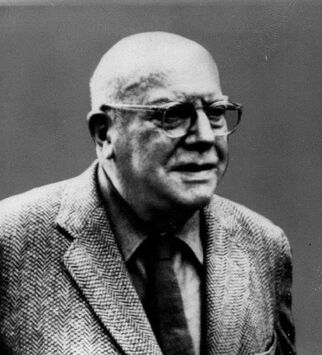 Conrad Aiken
Conrad Aiken
August 28:
Unitarian Poet Conrad Aiken
Sermon by Ruth Rodgers
Although he never joined a church, Conrad Aiken (1889-1973) identified himself as a Unitarian. His maternal grandfather, William J. Potter, was a Unitarian minister in New Bedford, Massachusetts and founder of the Free Religious Association, a group considered radical in its time for its rejection of dogma and openness to Darwin and science. His grandfather was Aiken’s “guiding light” and he considered his copies of Potter’s collected sermons his most prized possession. He was never without them and carried them with him when he traveled. Aiken is not as well-known as other poets of his time because he shied away from publicity and declined to read his poems in public, but he won the Pulitzer Prize for Poetry in 1930 and was U.S. Poet Laureate from 1950—1952. Aiken called poetry “the highest speech of man,” saying that it will “glorify all that we can know,” and he called himself “a naturalistic humanist” who was against “all forms of supernaturalism, dogma, myth, church.” He went on to state, “I believe in the evolution of consciousness…the evolution of mind, and that devotion to this is all the devotion we need.”
Unitarian Poet Conrad Aiken
Sermon by Ruth Rodgers
Although he never joined a church, Conrad Aiken (1889-1973) identified himself as a Unitarian. His maternal grandfather, William J. Potter, was a Unitarian minister in New Bedford, Massachusetts and founder of the Free Religious Association, a group considered radical in its time for its rejection of dogma and openness to Darwin and science. His grandfather was Aiken’s “guiding light” and he considered his copies of Potter’s collected sermons his most prized possession. He was never without them and carried them with him when he traveled. Aiken is not as well-known as other poets of his time because he shied away from publicity and declined to read his poems in public, but he won the Pulitzer Prize for Poetry in 1930 and was U.S. Poet Laureate from 1950—1952. Aiken called poetry “the highest speech of man,” saying that it will “glorify all that we can know,” and he called himself “a naturalistic humanist” who was against “all forms of supernaturalism, dogma, myth, church.” He went on to state, “I believe in the evolution of consciousness…the evolution of mind, and that devotion to this is all the devotion we need.”

August 7:
Soul Matters
Sermon by Rev. Amy Kindred
Soul Matters Sharing Circle is an independent group that provides a wealth of materials for congregations that pay for their services. Through a partnership effort with the UUA that partially finances the work of the team of individuals who comprise the Soul Matters team, congregations have access to resources available for Sunday morning services, curriculum for children and topic guides for Adult discussion groups. Join us to explore a theme or two from the program that is part of Unitarian Universalist Friendship Fellowship's wide array of future activities.
Soul Matters
Sermon by Rev. Amy Kindred
Soul Matters Sharing Circle is an independent group that provides a wealth of materials for congregations that pay for their services. Through a partnership effort with the UUA that partially finances the work of the team of individuals who comprise the Soul Matters team, congregations have access to resources available for Sunday morning services, curriculum for children and topic guides for Adult discussion groups. Join us to explore a theme or two from the program that is part of Unitarian Universalist Friendship Fellowship's wide array of future activities.

July 24:
Psst! Post Secret
Sermon by Rev. Amy Kindred
There is an old saying that goes like this. "Be kind. For, everyone you know is fighting a battle you know nothing about."
Based on a postcard experiment from several years ago, we will explore what secrets people carry that inhibit a life of comfort and ease. Maybe you too will be able to let go of something that has weighed you down for days, maybe years?
Psst! Post Secret
Sermon by Rev. Amy Kindred
There is an old saying that goes like this. "Be kind. For, everyone you know is fighting a battle you know nothing about."
Based on a postcard experiment from several years ago, we will explore what secrets people carry that inhibit a life of comfort and ease. Maybe you too will be able to let go of something that has weighed you down for days, maybe years?

July 17:
Humanly Happy
Sermon by Rev. Amy Kindred
Unitarian Universalism arose from a long history with Judeo and Christian roots. However, today our UU tradition embraces a whole array of treasured beliefs including humanism. Join us to find out how this living tradition is richer for the emergence of broader practices of inclusivity.
Humanly Happy
Sermon by Rev. Amy Kindred
Unitarian Universalism arose from a long history with Judeo and Christian roots. However, today our UU tradition embraces a whole array of treasured beliefs including humanism. Join us to find out how this living tradition is richer for the emergence of broader practices of inclusivity.
July 10:
5G, Five Eyes, and Huawei
Sermon by Scott Tilley
After three long years of investigation, analysis, and discussion, the Canadian federal government finally decided to ban the use of all Huawei and ZTE products and services in the country’s 5G networks. The term “5G” refers to the fifth generation of broadband cellular networks that promise significantly increased communication speeds. It’s the successor to 4G, which many of us see as “LTE” on our smartphones. 5G also plays a prominent role in networked devices, such as cameras and sensors, commonly known as the Internet of Things (IoT).
Canada is now in agreement with its Five Eyes allies (United States, United Kingdom, Australia, and New Zealand), all of whom had already announced similar restrictions on Huawei and ZTE equipment. There were significant cybersecurity concerns about giving the Chinese government access to critical components of the West’s next-generation computer systems. Come to this informative talk to hear about the role of hostage diplomacy, international politics, and the threat of omnipresent surveillance by foreign agents in our strategic national infrastructure.
5G, Five Eyes, and Huawei
Sermon by Scott Tilley
After three long years of investigation, analysis, and discussion, the Canadian federal government finally decided to ban the use of all Huawei and ZTE products and services in the country’s 5G networks. The term “5G” refers to the fifth generation of broadband cellular networks that promise significantly increased communication speeds. It’s the successor to 4G, which many of us see as “LTE” on our smartphones. 5G also plays a prominent role in networked devices, such as cameras and sensors, commonly known as the Internet of Things (IoT).
Canada is now in agreement with its Five Eyes allies (United States, United Kingdom, Australia, and New Zealand), all of whom had already announced similar restrictions on Huawei and ZTE equipment. There were significant cybersecurity concerns about giving the Chinese government access to critical components of the West’s next-generation computer systems. Come to this informative talk to hear about the role of hostage diplomacy, international politics, and the threat of omnipresent surveillance by foreign agents in our strategic national infrastructure.
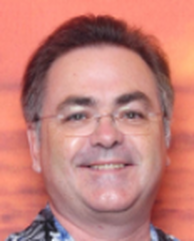 Scott Tilley
Scott Tilley
Scott Tilley is an emeritus professor at the Florida Institute of Technology, president and founder of the Center for Technology & Society, president and co-founder of Big Data Florida, Senior Fellow at the American Security Council Foundation, past president of INCOSE Space Coast, and a Space Coast Writers’ Guild Fellow. His recent books include Systems Analysis & Design (Cengage, 2020), Perspectives on Systems Engineering from Florida’s Space Coast (CTS Press, 2020), and PETS (Anthology Alliance, 2021). He wrote the “Technology Today” column for the FLORIDA TODAY newspaper from 2010 to 2018. He holds a Ph.D. in computer science from the University of Victoria.

July 3:
There is Much to Love About Our Country
Sermon by Rev. Amy Kindred
While several might harbor frustrations about what isn't working well in the United States,
if one has any knowledge of what is happening in other countries, it behooves us to stop and remember what there is to love. This is a participatory service.
There is Much to Love About Our Country
Sermon by Rev. Amy Kindred
While several might harbor frustrations about what isn't working well in the United States,
if one has any knowledge of what is happening in other countries, it behooves us to stop and remember what there is to love. This is a participatory service.

Annual 4th of July lunch on the grill after the service

June 26:
GA Worship Service:
Service Leader: Rev. Amy Kindred
Every year, delegates from our member congregations gather for the Unitarian Universalist Annual General Assembly to vote and participate in lectures. At the end of the busy week, there is a moving Sunday morning service that is streamed online so all congregations may hear the music and the message. Join us for this powerful, communal worship experience, the largest annual gathering of Unitarian Universalists. This year, the UUA General Assembly is being held in Portland, Oregon. The Sunday service is held at 9:30 am Pacific time (which is 12:30 Eastern time.)
Here is the GA description of this service:
The Deal on Those Days
The last few years have not been easy, including in our local congregations. Whole swaths of members have simply stopped coming; COVID is confusing, and polarizing; many ministers have joined the great resignation; and Pew studies and friends alike have pronounced the end of the local church.
In this moment, when so many of us might be wondering if we should just give up, and relent, now’s the time instead to double down on our commitment to the local church - this unique community that saves us and also breaks our hearts - often much more of the latter than we’d like to admit. In the midst of our culture of death, the church is a place of life. Or it is, as long as we are willing to bring our own lives to it. Join us for a morning of celebration, witness, and future-visioning for the already and not yet power of the local Unitarian Universalist church.
Leading us in worship will be Rev. Gretchen Haley, Rev. Shari Halliday-Quan, Rev. Sean Neil-Barron, Lea Morris, Adam Podd, Joseph and Aimee Santos-Lyons, and Allison King with the GA Choir. Rev. Gretchen Haley Rev. Shari Halliday-Quan Rev. Sean NeilBarron Lea Morris Adam Podd Allison King
Read more at www.uua.org/ga/program/highlights/sunday-morning-worship
GA Worship Service:
Service Leader: Rev. Amy Kindred
Every year, delegates from our member congregations gather for the Unitarian Universalist Annual General Assembly to vote and participate in lectures. At the end of the busy week, there is a moving Sunday morning service that is streamed online so all congregations may hear the music and the message. Join us for this powerful, communal worship experience, the largest annual gathering of Unitarian Universalists. This year, the UUA General Assembly is being held in Portland, Oregon. The Sunday service is held at 9:30 am Pacific time (which is 12:30 Eastern time.)
Here is the GA description of this service:
The Deal on Those Days
The last few years have not been easy, including in our local congregations. Whole swaths of members have simply stopped coming; COVID is confusing, and polarizing; many ministers have joined the great resignation; and Pew studies and friends alike have pronounced the end of the local church.
In this moment, when so many of us might be wondering if we should just give up, and relent, now’s the time instead to double down on our commitment to the local church - this unique community that saves us and also breaks our hearts - often much more of the latter than we’d like to admit. In the midst of our culture of death, the church is a place of life. Or it is, as long as we are willing to bring our own lives to it. Join us for a morning of celebration, witness, and future-visioning for the already and not yet power of the local Unitarian Universalist church.
Leading us in worship will be Rev. Gretchen Haley, Rev. Shari Halliday-Quan, Rev. Sean Neil-Barron, Lea Morris, Adam Podd, Joseph and Aimee Santos-Lyons, and Allison King with the GA Choir. Rev. Gretchen Haley Rev. Shari Halliday-Quan Rev. Sean NeilBarron Lea Morris Adam Podd Allison King
Read more at www.uua.org/ga/program/highlights/sunday-morning-worship

June 19:
Let's Talk About Sex(uality)
Sermon by Rev. Amy Kindred
Infamous Betty White said, "I may be a senior but, so what? I am still hot." Confidence in one's body, bold ability to love and affirm others makes the world a place of dignity for all.
Let's Talk About Sex(uality)
Sermon by Rev. Amy Kindred
Infamous Betty White said, "I may be a senior but, so what? I am still hot." Confidence in one's body, bold ability to love and affirm others makes the world a place of dignity for all.

June 12:
Six Little Known Unitarian Universalist Influences
Sermon by Rev. Amy Kindred
Small but mighty is the Unitarian Universalist impact! Join us and find out more about our history and influence.
Six Little Known Unitarian Universalist Influences
Sermon by Rev. Amy Kindred
Small but mighty is the Unitarian Universalist impact! Join us and find out more about our history and influence.
 Photo: Christian Bowen via Unsplash
Photo: Christian Bowen via Unsplash
May 29:
Responsible Search for Meaning
Sermon by Rev. Amy Kindred
We Unitarian Universalists aspire to affirm A free and responsible search for truth and meaning. This morning, we will explore our 4th Principle.
(Photo: Joshua Earle via Unsplash)
Responsible Search for Meaning
Sermon by Rev. Amy Kindred
We Unitarian Universalists aspire to affirm A free and responsible search for truth and meaning. This morning, we will explore our 4th Principle.
(Photo: Joshua Earle via Unsplash)
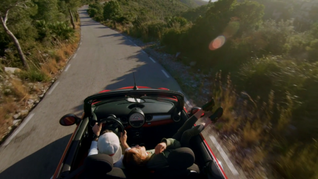
May 22:
Affirming the Journey
Sermon by Rev. Amy Kindred
Christina Rosettie wrote,
"Does the road wind up-hill all the way?
Yes, to the very end.
Will the day’s journey take the whole long day?
From morn to night, my friend."
Affirming the Journey
Sermon by Rev. Amy Kindred
Christina Rosettie wrote,
"Does the road wind up-hill all the way?
Yes, to the very end.
Will the day’s journey take the whole long day?
From morn to night, my friend."
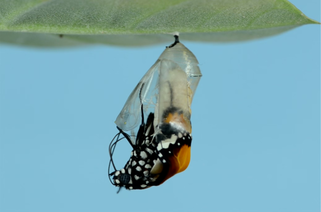 Photo: Bankim Desai via Unsplash
Photo: Bankim Desai via Unsplash
May 1:
A Different Life
Sermon by Rev. Amy Kindred
The Buddha said, "Nothing is constant but change." After what we have all encountered throughout the past two years of Covid concerns, I don't think anyone can argue this fact. Join us as we explore both the gifts and challenges of a changed life.
A Different Life
Sermon by Rev. Amy Kindred
The Buddha said, "Nothing is constant but change." After what we have all encountered throughout the past two years of Covid concerns, I don't think anyone can argue this fact. Join us as we explore both the gifts and challenges of a changed life.
 Photo: Rodolfo Marques via Unsplash
Photo: Rodolfo Marques via Unsplash
April 24:
Bread of Life
Sermon by Rev. Amy Kindred
One world, many cultures. Two ingredients, grain and water. Many hands, humanity is nourished, mind, body and spirit. What are the stories around bread and how have they been woven into sacred and secular traditions around the world? What is the role of food now and in the future?
Bread of Life
Sermon by Rev. Amy Kindred
One world, many cultures. Two ingredients, grain and water. Many hands, humanity is nourished, mind, body and spirit. What are the stories around bread and how have they been woven into sacred and secular traditions around the world? What is the role of food now and in the future?
 Photo: Alexander Schimmeck via Unsplash
Photo: Alexander Schimmeck via Unsplash
April 17:
Each Blossom a Beauty
Sermon by Rev. Amy Kindred
Here is a little known fact. Unitarian Universalists do have rituals. Consider our unique UU custom called, "Flower Communion" by some and "Flower Ceremony" by others. On this Sunday, the Friendship Fellowship community invites every person to bring a blossom to contribute to a vase at the front of Fellowship Hall at the beginning of service. Stay with us to learn about why this tradition is so meaningful. And, at the end of the service, each person will take a different flower home.
It is also Easter in the Christian tradition. Our children will be hunting Easter Eggs this morning.
Each Blossom a Beauty
Sermon by Rev. Amy Kindred
Here is a little known fact. Unitarian Universalists do have rituals. Consider our unique UU custom called, "Flower Communion" by some and "Flower Ceremony" by others. On this Sunday, the Friendship Fellowship community invites every person to bring a blossom to contribute to a vase at the front of Fellowship Hall at the beginning of service. Stay with us to learn about why this tradition is so meaningful. And, at the end of the service, each person will take a different flower home.
It is also Easter in the Christian tradition. Our children will be hunting Easter Eggs this morning.

April 3:
Green Sanctuary
Sermon by
Rev. Amy Kindred
The Unitarian Universalist Association provides a route to accreditation for member congregations to express their deeper commitment to just practices that honor the earth and in turn, supports the dignity of all people. Join us to learn more about what it means to collectively affirm our 7 principles.
*Save the date for Saturday, April 16 from 10 - noon for a deeper conversation in fellowship hall. All are invited.
Green Sanctuary
Sermon by
Rev. Amy Kindred
The Unitarian Universalist Association provides a route to accreditation for member congregations to express their deeper commitment to just practices that honor the earth and in turn, supports the dignity of all people. Join us to learn more about what it means to collectively affirm our 7 principles.
*Save the date for Saturday, April 16 from 10 - noon for a deeper conversation in fellowship hall. All are invited.
 Photo: Kristine Cinate via Unsplash
Photo: Kristine Cinate via Unsplash
March 27:
Renewal
Sermon by Rev. Amy Kindred
In this shortened homily, Rev. Amy shares a few tips for finding a sense of renewal after our shared experience of facing fear and an unknown future.
Renewal
Sermon by Rev. Amy Kindred
In this shortened homily, Rev. Amy shares a few tips for finding a sense of renewal after our shared experience of facing fear and an unknown future.
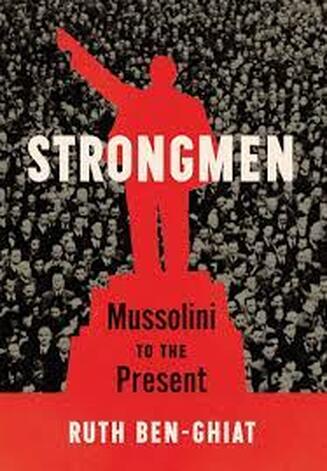
March 13:
The Appeal of Authoritarianism Sermon by Dr. Christopher Lane This sermon focuses on the psychological dynamics that authoritarian nationalism and populism can stir in citizens, to examine why, when, and how individuals become susceptible to authoritarian principles: extremist thinking; seemingly infallible doctrines often built on groundless conspiracies; fierce, targeted grievances; distrust of and mass discontent with social institutions; and leaders who give voice to their passionate hatreds. It revisits both classics on the topic—Adorno’s The Authoritarian Personality (1950) and Hoffer’s The True Believer (1951)—and more-recent studies by Ruth Ben-Ghiat (Strongmen: Mussolini to the Present, 2020, pictured here) and Timothy Snyder (On Tyranny, 2017). The focus throughout is on how to weaken authoritarianism’s grip, depolarize the groups it sets in conflict, and repair the damage and havoc on which it thrives. Note: The Suntree library Strategy and Leadership book club, chaired by Andy Petruska, will be discussing this topic on March 8 and is presently reading "Strongmen: Mussolini to the Present" by Ruth Ben-Ghiat. If you would like to join us contact Andy at [email protected] for more details. Here's a video of Ruth Ben-Ghiat's discussion of her book: |
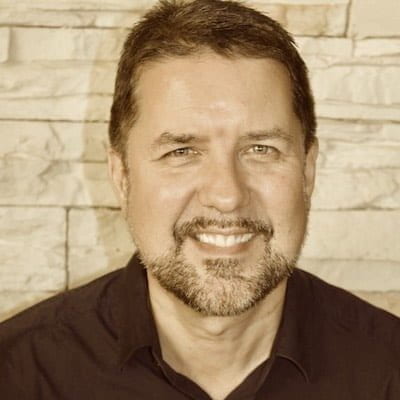 Dr. Christopher Lane Dr. Christopher Lane
Dr. Christopher Lane (christopherlane.org) teaches intellectual history and medical humanities at Northwestern University. He is the author of six books, most recently Surge of Piety: Norman Vincent Peale and the Remaking of American Religious Life (Yale, 2016), on Peale’s self-described “religio-psychiatric” clinic and movement in the 1950s. His writing has appeared in the New York Times, Washington Post, Boston Globe, Los Angeles Times, Chicago Sun-Times, Slate, TIME.
|
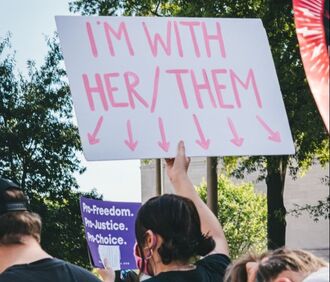 Photo: Gayatri Malhotra via Unsplash
Photo: Gayatri Malhotra via Unsplash
March 6:
The Danger
of a Single Story
Sermon by Rev. Amy Kindred
Is it possible to be unbiased when making decisions for other people? When it comes to reproductive health, it seems people make decisions often based on a single story or narrative.
The Danger
of a Single Story
Sermon by Rev. Amy Kindred
Is it possible to be unbiased when making decisions for other people? When it comes to reproductive health, it seems people make decisions often based on a single story or narrative.

February 27:
Dreams and Artist Salvador Dali
Sermon by Rev. Amy Kindred
Referencing the work of Salvador Dali, we will explore the human fascination
with eccentricity and religious symbolism.
Dreams and Artist Salvador Dali
Sermon by Rev. Amy Kindred
Referencing the work of Salvador Dali, we will explore the human fascination
with eccentricity and religious symbolism.
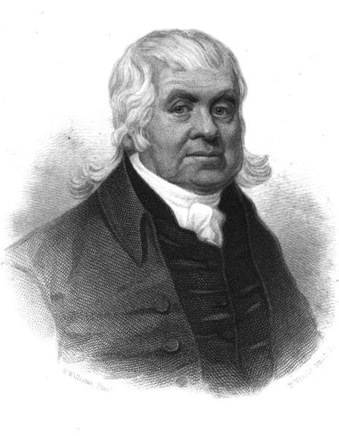 John Murray John Murray
February 20:
Our Universalist Roots and Branches Sermon by Rev. Kalen Frisdad Universalism as it relates to John Murray and Thomas Potter, the American colonies, from colonial times to the present. In this sermon, Rev Fristad will expand and build upon what he presented last year in his sermon, "Universalism: Past, Present and Powerful”. To receive the Zoom link please contact [email protected] and sign our guest book. |
 Karl Bryullov's "A Dream of a Girl Before a Sunrise."
Karl Bryullov's "A Dream of a Girl Before a Sunrise."
February 13:
What's in a Dream?
Sermon by Rev. Amy Kindred
Ever wake up from a dream and wonder,
"What the heck was that about?" Based on research in the area of dream imagery, join us as we seek to understand the mystery of the subconscious.
What's in a Dream?
Sermon by Rev. Amy Kindred
Ever wake up from a dream and wonder,
"What the heck was that about?" Based on research in the area of dream imagery, join us as we seek to understand the mystery of the subconscious.
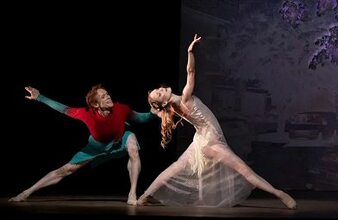 Eward Watson and Sarah Lamb as Dante and Beatrice in "Paradiso", the final section of "The Dante Project", put on in 2021 by the Royal Opera House.
Eward Watson and Sarah Lamb as Dante and Beatrice in "Paradiso", the final section of "The Dante Project", put on in 2021 by the Royal Opera House.
February 6:
On Dante Alighieri
Sermon by Rev. Amy Kindred
Dante Alighieri's epic work, THE DIVINE COMEDY, contains layers of beautiful text regarding God, human virtue and frailty.
On Dante Alighieri
Sermon by Rev. Amy Kindred
Dante Alighieri's epic work, THE DIVINE COMEDY, contains layers of beautiful text regarding God, human virtue and frailty.
 Photo by Jason Rost on Unsplash
Photo by Jason Rost on Unsplash
January 30:
Where Art Thou, Delight?
Sermon by Rev. Amy Kindred
Zadie Smith wrote that joy is "terror and delight sitting next to each other, their feet dangling off the side of a bridge very high up." Anyone who loves deeply, and lots of people do, knows this feeling. While delight provides a high degree of pleasure, many of us dread or fear the moment when delight is absent. Or, has it transformed?
Where Art Thou, Delight?
Sermon by Rev. Amy Kindred
Zadie Smith wrote that joy is "terror and delight sitting next to each other, their feet dangling off the side of a bridge very high up." Anyone who loves deeply, and lots of people do, knows this feeling. While delight provides a high degree of pleasure, many of us dread or fear the moment when delight is absent. Or, has it transformed?

January 16:
Living with Intention
Sermon by Rev. Amy Kindred
Howard Thurman said, " “Keep fresh before me the moments of my high resolve. Despite the dullness and barrenness of the days that pass, if I search with due diligence, I can always find a deposit left by some former radiance." As the new year kicks into high gear, let's pause to consider what in life is most important and what we plan to do with our "one and only precious life." (Last quote by Mary Oliver)
Living with Intention
Sermon by Rev. Amy Kindred
Howard Thurman said, " “Keep fresh before me the moments of my high resolve. Despite the dullness and barrenness of the days that pass, if I search with due diligence, I can always find a deposit left by some former radiance." As the new year kicks into high gear, let's pause to consider what in life is most important and what we plan to do with our "one and only precious life." (Last quote by Mary Oliver)
 Photo by Umberto on Unsplash
Photo by Umberto on Unsplash
January 9:
What's in a Promise?
Sermon by Rev. Amy Kindred
A popular meme on a social media site says, "Don't give up on me. I won't give up on you." I bet this isn't the first thought that comes to mind when a person asks for a description of a promise or commitments we make to one another. Time and time again we make and break promises. And yet, a promise means something. Let's explore!
During her message Rev. Amy referred to the following speech by David Brooks, New York Times writer.
What's in a Promise?
Sermon by Rev. Amy Kindred
A popular meme on a social media site says, "Don't give up on me. I won't give up on you." I bet this isn't the first thought that comes to mind when a person asks for a description of a promise or commitments we make to one another. Time and time again we make and break promises. And yet, a promise means something. Let's explore!
During her message Rev. Amy referred to the following speech by David Brooks, New York Times writer.

